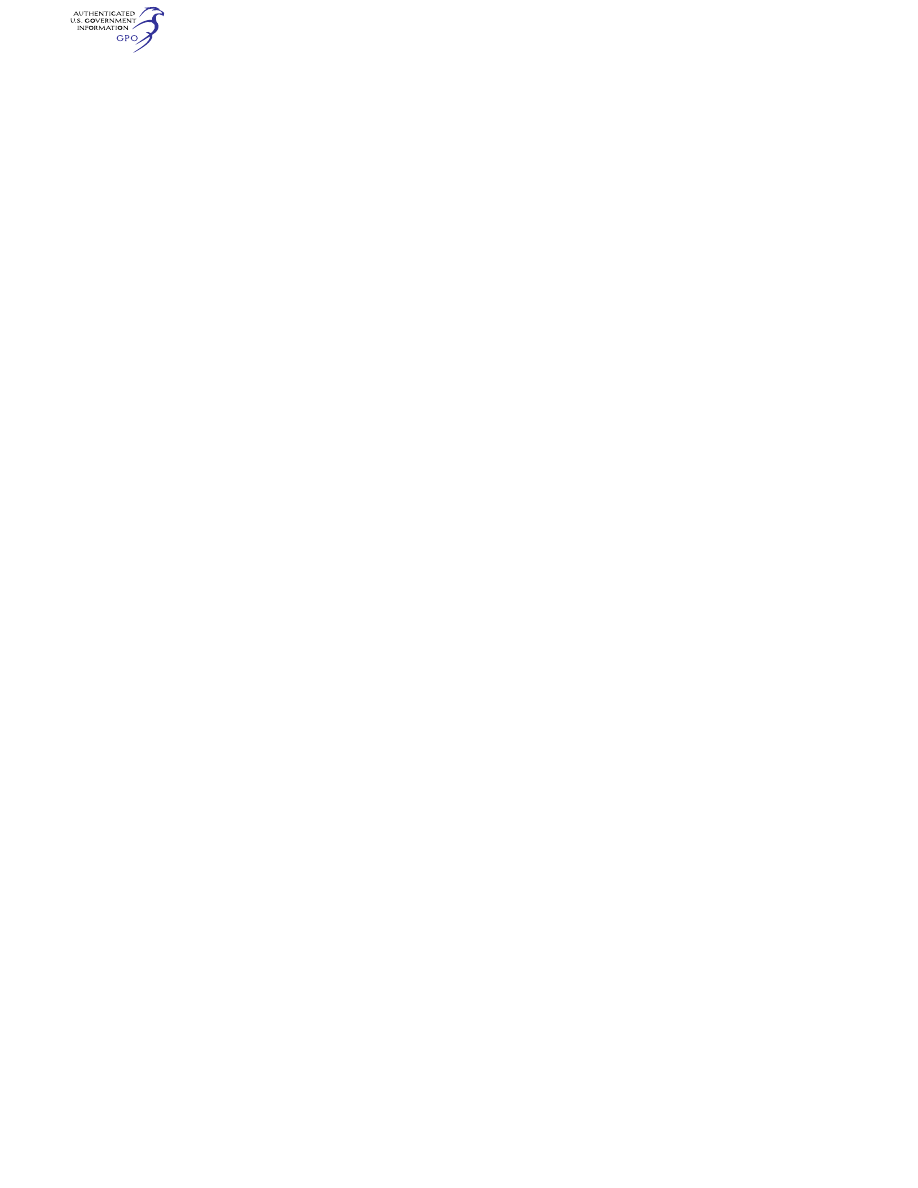
346
14 CFR Ch. I (1–1–24 Edition)
§ 25.1326
system incorporates both a primary
and an alternate static pressure source,
the means for selecting one or the
other source must be designed so
that—
(1) When either source is selected, the
other is blocked off; and
(2) Both sources cannot be blocked
off simultaneously.
(h) For unpressurized airplanes, para-
graph (g)(1) of this section does not
apply if it can be demonstrated that
the static pressure system calibration,
when either static pressure source is
selected, is not changed by the other
static pressure source being open or
blocked.
[Doc. No. 5066, 29 FR 18291, Dec. 24, 1964, as
amended by Amdt. 25–5, 30 FR 8261, June 29,
1965; Amdt. 25–12, 32 FR 7587, May 24, 1967;
Amdt. 25–41, 42 FR 36970, July 18, 1977; Amdt.
25–108, 67 FR 70828, Nov. 26, 2002; Amdt. 25–
140, 79 FR 65527, Nov. 4, 2014]
§ 25.1326
Pitot heat indication systems.
If a flight instrument pitot heating
system is installed, an indication sys-
tem must be provided to indicate to
the flight crew when that pitot heating
system is not operating. The indication
system must comply with the following
requirements:
(a) The indication provided must in-
corporate an amber light that is in
clear view of a flight crewmember.
(b) The indication provided must be
designed to alert the flight crew if ei-
ther of the following conditions exist:
(1) The pitot heating system is
switched ‘‘off’’.
(2) The pitot heating system is
switched ‘‘on’’ and any pitot tube heat-
ing element is inoperative.
[Amdt. 25–43, 43 FR 10339, Mar. 13, 1978]
§ 25.1327
Magnetic direction indicator.
(a) Each magnetic direction indicator
must be installed so that its accuracy
is not excessively affected by the air-
plane’s vibration or magnetic fields.
(b) The compensated installation
may not have a deviation, in level
flight, greater than 10 degrees on any
heading.
§ 25.1329
Flight guidance system.
(a) Quick disengagement controls for
the autopilot and autothrust functions
must be provided for each pilot. The
autopilot quick disengagement con-
trols must be located on both control
wheels (or equivalent). The autothrust
quick disengagement controls must be
located on the thrust control levers.
Quick disengagement controls must be
readily accessible to each pilot while
operating the control wheel (or equiva-
lent) and thrust control levers.
(b) The effects of a failure of the sys-
tem to disengage the autopilot or
autothrust functions when manually
commanded by the pilot must be as-
sessed in accordance with the require-
ments of § 25.1309.
(c) Engagement or switching of the
flight guidance system, a mode, or a
sensor may not cause a transient re-
sponse of the airplane’s flight path any
greater than a minor transient, as de-
fined in paragraph (n)(1) of this section.
(d) Under normal conditions, the dis-
engagement of any automatic control
function of a flight guidance system
may not cause a transient response of
the airplane’s flight path any greater
than a minor transient.
(e) Under rare normal and non-nor-
mal conditions, disengagement of any
automatic control function of a flight
guidance system may not result in a
transient any greater than a signifi-
cant transient, as defined in paragraph
(n)(2) of this section.
(f) The function and direction of mo-
tion of each command reference con-
trol, such as heading select or vertical
speed, must be plainly indicated on, or
adjacent to, each control if necessary
to prevent inappropriate use or confu-
sion.
(g) Under any condition of flight ap-
propriate to its use, the flight guidance
system may not produce hazardous
loads on the airplane, nor create haz-
ardous deviations in the flight path.
This applies to both fault-free oper-
ation and in the event of a malfunc-
tion, and assumes that the pilot begins
corrective action within a reasonable
period of time.
(h) When the flight guidance system
is in use, a means must be provided to
avoid excursions beyond an acceptable
margin from the speed range of the
normal flight envelope. If the airplane
experiences an excursion outside this
range, a means must be provided to
prevent the flight guidance system
VerDate Sep<11>2014
09:06 Jun 28, 2024
Jkt 262046
PO 00000
Frm 00356
Fmt 8010
Sfmt 8010
Y:\SGML\262046.XXX
262046
jspears on DSK121TN23PROD with CFR